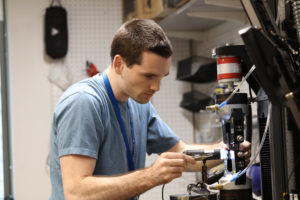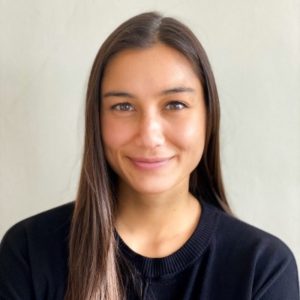Designers are working quickly to protect humans from illness. At the start of the pandemic, designs for personal protective equipment (PPE) had changed very little for nearly fifty years. In the face of alarming shortages, the global maker movement jumped into action, and legions of home sewers stitched masks for essential workers. Engineers, artists, doctors, and designers sought to improve the comfort, effectiveness, and sustainability of PPE. Meanwhile, official guidelines were shifting. What is the state of PPE design now?
Moderated by Morgan Hutchinson, MD and Ellen Lupton
Monique Smith, MD
Emergency Doctor, Founding Director, Health Design ED, Emory University

Monique Smith, MD; Photo by Jules Photography
Adam Wentworth
Designer, TEAL Reusable Respirator

Adam Wentworth
Sabrina Paseman
Designer, Essential Mask Brace

Sabrina Paseman
Designing on the Front Lines, Season 2
In this virtual forum, designers and doctors talk about designing better services, PPE, public spaces, and more in the age of COVID-19. Presented by the Health Design Lab at Thomas Jefferson University and Cooper Hewitt, Smithsonian Design Museum. Season 1 took place in summer 2020.
Each episode of Designing on the Front Lines, Season 2 will be recorded and archived with transcript and show notes at CooperHewitt.org. The show will be re-broadcast each week on Design Lab Podcast with Bon Ku. You can find that podcast on any platform you use to consume podcasts.
Production by Robert Pugliese
Accessibility
This free program will feature short talks and a panel discussion, hosted through Zoom, with the option to dial in as well. Details will be emailed to you upon registration. This program includes closed captioning. For general questions or if we can provide additional accessibility services or accommodations to support your participation in this program, please email us at CHCuratorial@si.edu.
The exhibition Design and Healing: Creative Responses to Epidemics is made possible with major support from Crystal and Chris Sacca. Generous support is also provided by Lisa Roberts and David Seltzer and the Lily Auchincloss Foundation. Additional support is provided by the Cooper Hewitt Master’s Program Fund.
